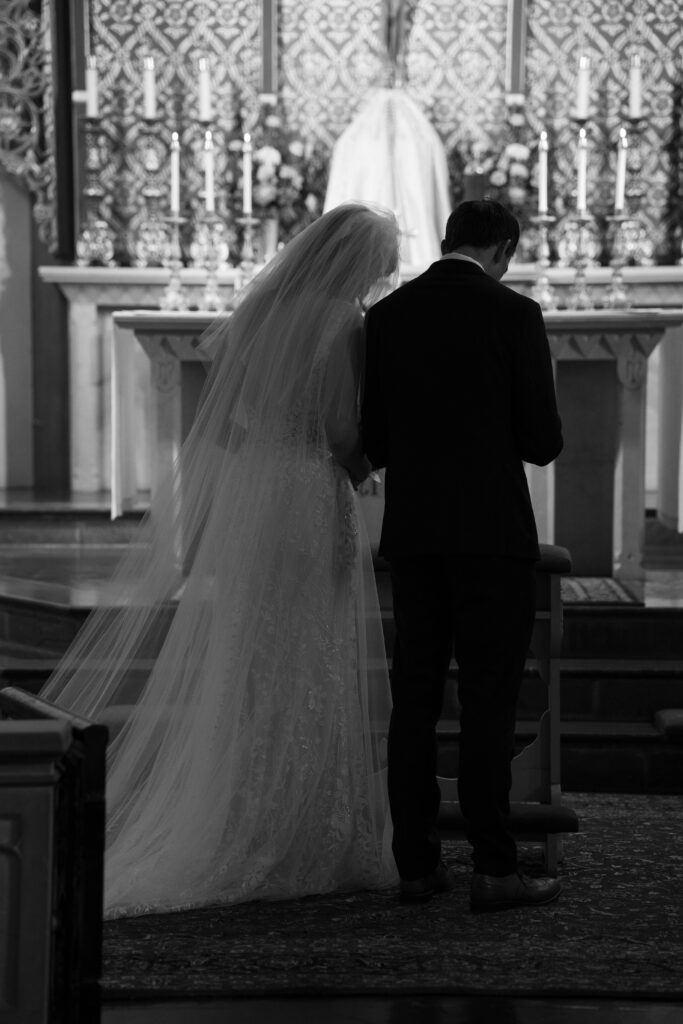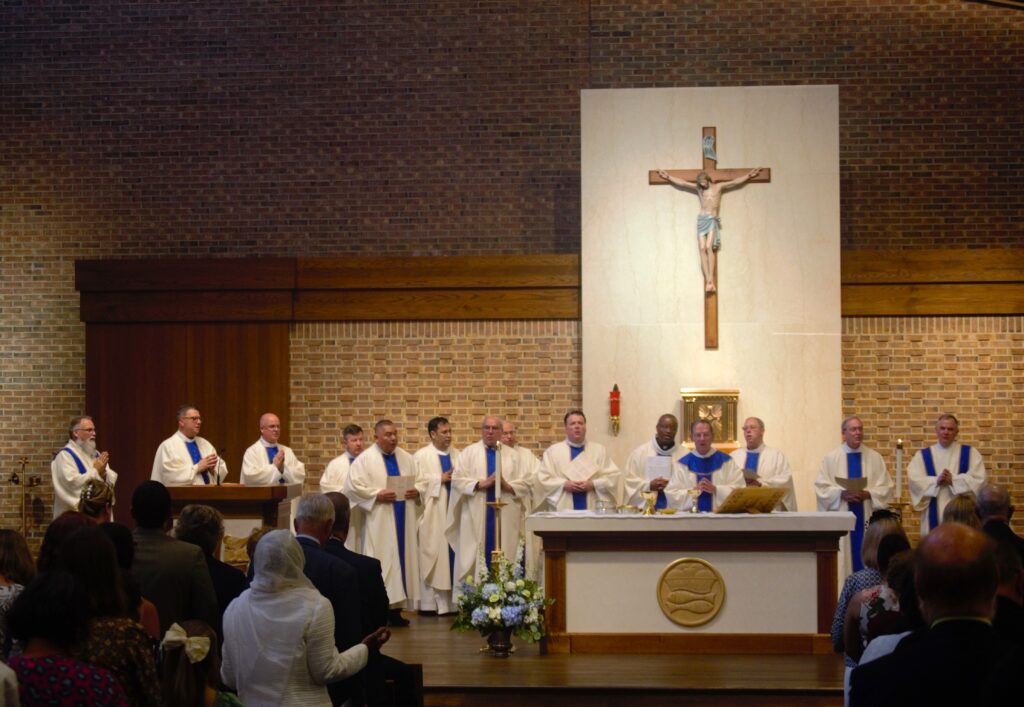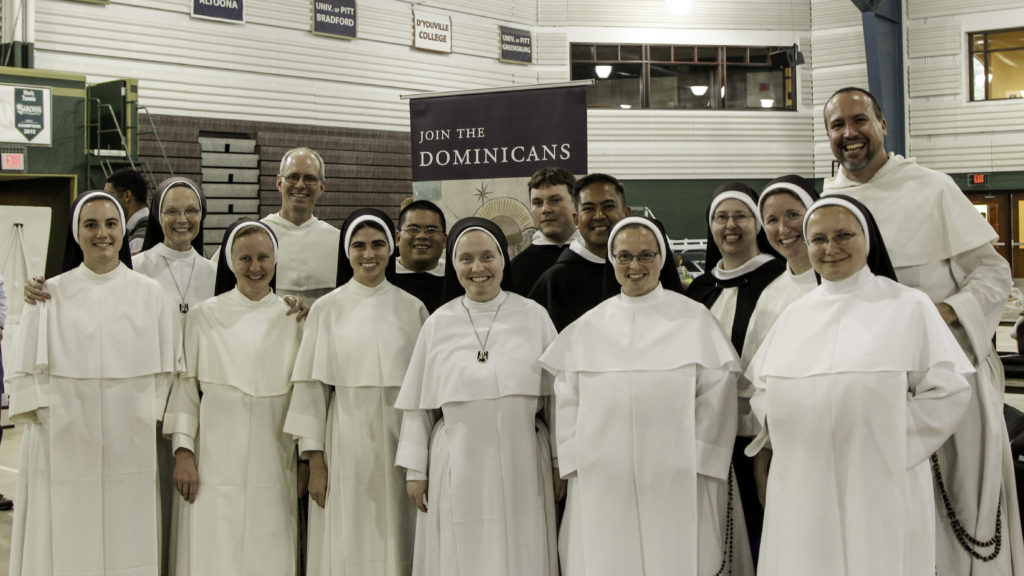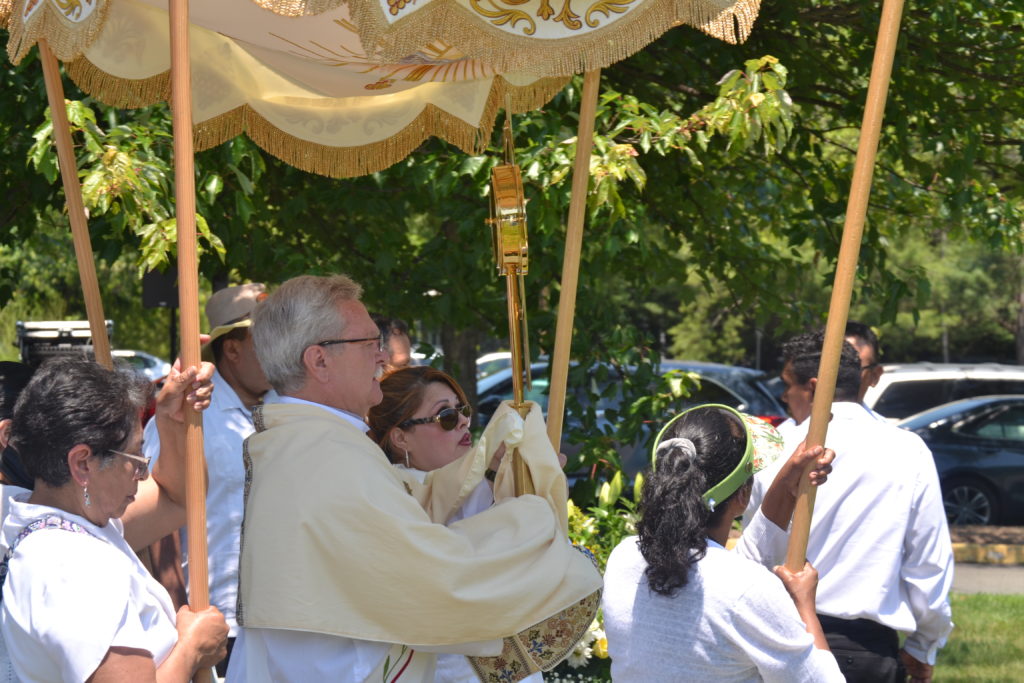Holy Orders & Vocations
A vocation is a call from God to share in His mission in the world. Everyone has a vocation. Sometimes this concept is referred to as “the universal call to holiness,” meaning that all people, everywhere, regardless of the vocation to which God calls them, are all called to be holy and the general call to holiness is made concrete through one’s particular vocation. It is in answering this call that we find joy.
For more information, visit the Diocese of Arlington’s Office of Vocations. If you are discerning a Religious Vocation and want to talk to a priest, contact the parish office.

Marriage
By far, the greatest number of people in the Church are called to holiness by living the vocation of marriage. The Sacrament of Marriage is the exchange of consent between a man and woman who mutually give and receive one another through the sacrament in service to God, each other, and their children. Every couple must strive to recognize this holy bond in which they are called to live a sacred and saintly life.
Engaged couples are encouraged to ask themselves whether God is calling them to marriage — to a faithful, permanent, and life-giving relationship that is, in essence, the foundation of the Christian family, or domestic church. A premarital assessment and formal marriage preparation assist couples on their journey to answer the call to the vocation of spouse.
Priesthood
A call to a priestly life is best understood by considering who a priest is. He is a man of faith and prayer called to be a church minister; he proclaims the Word of God; he administers the Sacraments; he lives celibately as servant-leader; he builds a parish community that works to bring healing, justice, and holiness to all. Through the Sacrament of Holy Orders, baptized men are consecrated in Christ’s name “to nourish the Church with the word and grace of God.”


Consecrated Life
In every age there have been men and women who, obedient to the Father’s call and to the prompting of the Spirit, have chosen this special way of following Christ, in order to devote themselves to him with an “undivided” heart (1 Cor 7:34). Like the Apostles, they too have left everything behind in order to be with Christ and to put themselves, as He did, at the service of God and their brothers and sisters. In this way, through the many charisms of spiritual and apostolic life bestowed on them by the Holy Spirit, they have helped to make the mystery and mission of the Church shine forth, and in doing so have contributed to the renewal of society.
Living in obedience, with nothing of one’s own, and in chastity, consecrated persons profess that Jesus is the model in whom every virtue comes to perfection. In every age, the Spirit enables new men and women to recognize the appeal of such a demanding choice.
Single Life
All are called to live their life joined to Christ in Baptism. For many, single life becomes the best way to fulfill their vocation. Accepting the vocation of the single life means choosing to serve God as a member of the laity. Single men and women live the call to holiness in the context of what might be called secular jobs – sanctifying their workplaces by their witness to the Gospel and its values, especially with a commitment to respecting human life and dignity, the virtues of honesty and integrity, and a concern for the needs of those who are poor. It is important to note that single people are not isolated individuals, but rather people who grow in holiness through friendships within and outside of their work and also in their family relationships as sons and daughters, brothers and sisters, aunts and uncles.


Permanent Diaconate
Permanent Deacons are men who are single and celibate, and more frequently those who are married and are also consecrated to exercise the ministry of service in the sacrament of Holy Orders. Deacons assist parish priests in some sacramental ministry – for example celebrating Baptisms and witnessing weddings. Deacons also occasionally preach in the context of liturgical celebrations. Deacons exercise a ministry of teaching in the Church, especially preparing parishioners for the celebration of the sacraments. The heart of the diaconal ministry, however, is the ministry of service – to the sick, the homebound, the poor, those in prison or in hospitals.